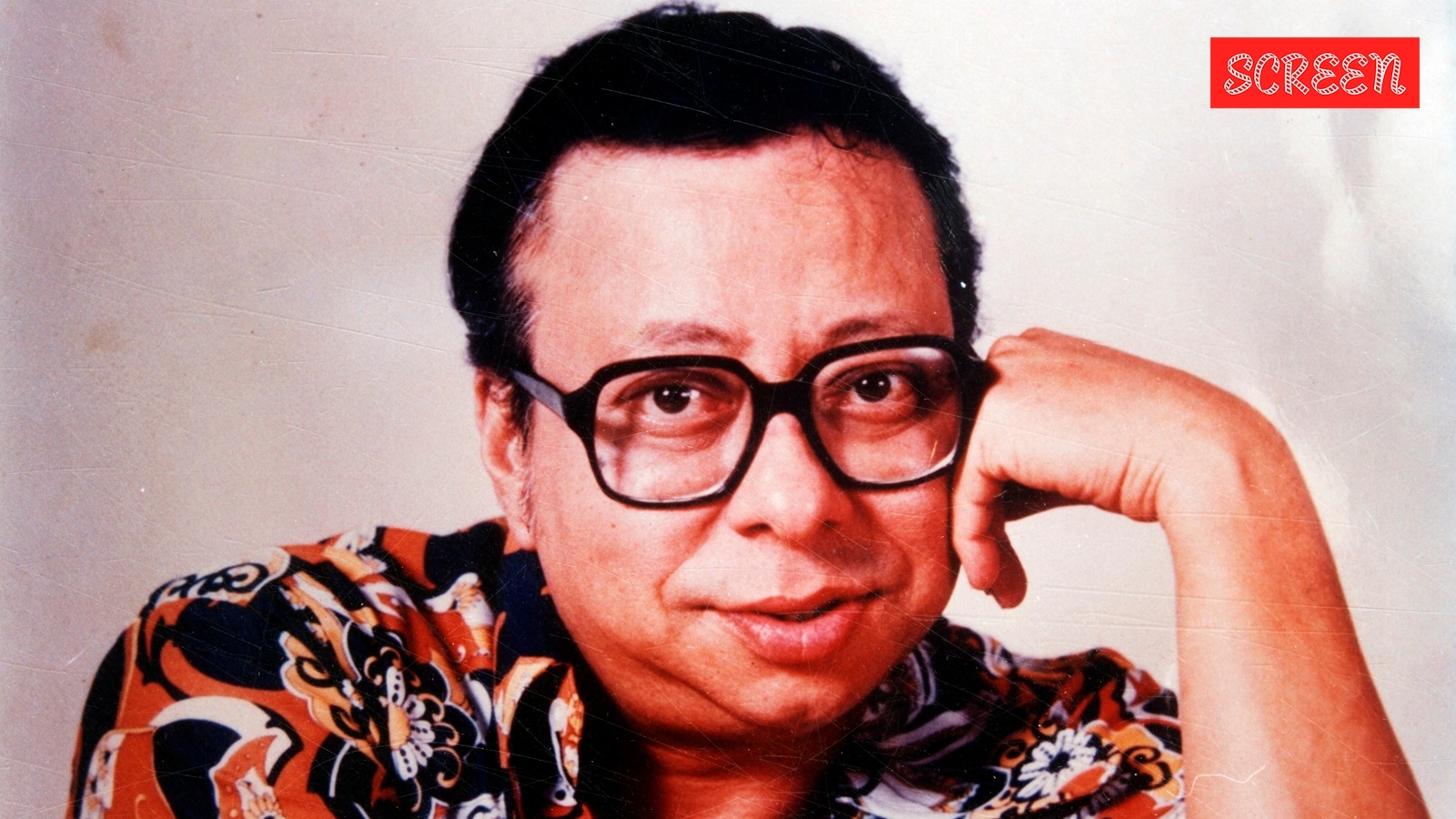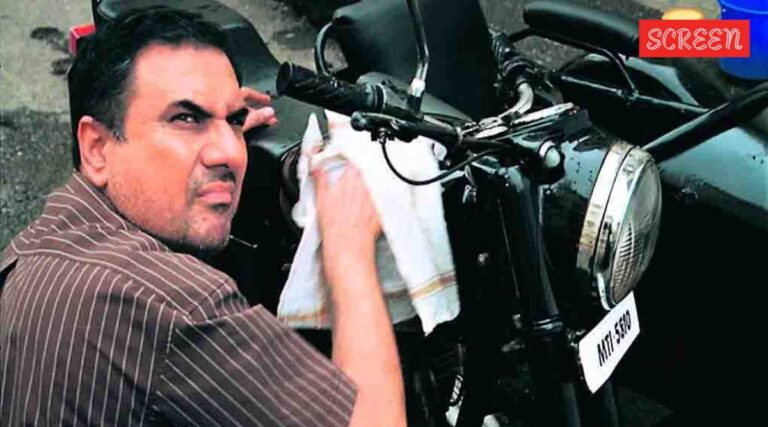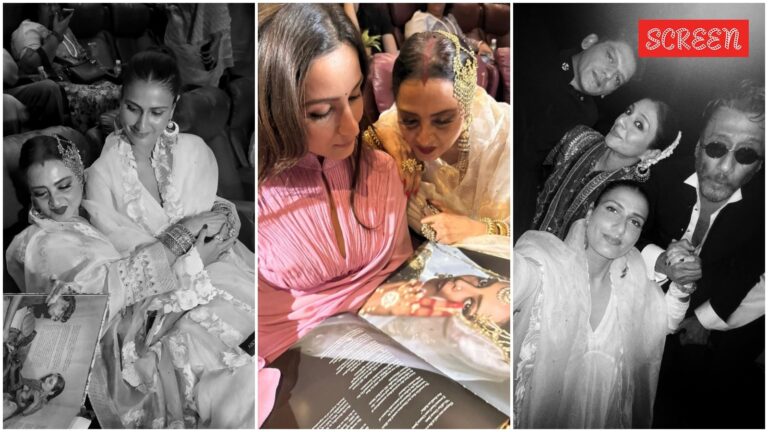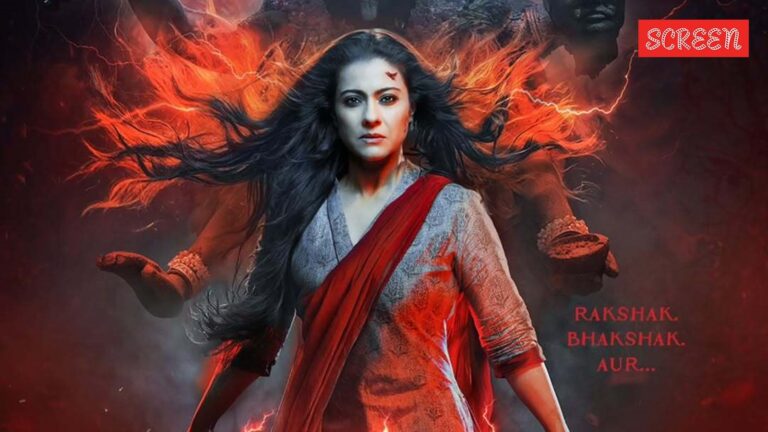The romantic ‘Chura liya hai tumne jo dil ko’, the seductive ‘Bahon mein chale aao’, the melancholic ‘Kya hua tera vaada’, the fun ‘Bachna ae haseeno’, the existential ‘Aanevala pal jaanevala hai’, the trippy ‘Dum maaro dum’, and the playful ‘Lakdi ki kathi’ – all these iconic film songs hold a special place in the history of Hindi film music. Each song evokes a different mood and all of them sound unlike each other but they have one thing in common – they came out of the musically genius brain of music composer RD Burman.
Pancham, as he was fondly called, who ruled the Hindi film music scene across the 1970s and composed one gem after another, had a distinct identity when it came to his music. He was as versatile as a music composer could possibly be, yet he had a distinct sound that made him stand apart from his contemporaries. The best years of his career started in the late 1960s with the likes of Padosan (Meri samne vali khidki, Ek chatur naar), and by the time the 1970s rolled in, Pancham was far ahead than his competitors. Yet, like many greats, who are often honoured with the respect they deserve after they pass on, Pancham too, truly became iconic after he gave the world his swan song in the Vidhu Vinod Chopra film, 1942 A Love Story. Pancham, one of the most prolific music composers of his generation, was rejected by his contemporaries in his last years as his competitors engaged in petty industry politics against him, and he lost confidence in himself.
After creating some of the most popular albums of the 1970s, like Amar Prem (Kuch toh log kahenge, Chingari koi bhadke), Sholay (Yeh dosti hum nahi todenge), Namak Haraam (Diye jalte hain), Aandhi (Iss mod se jaate hain, Tere bina zindagi se koi), RD Burman’s lean phase started somewhere in the mid-1980s. This was the time when the Hindi film industry was anyway going through its worst period. Films were collapsing at the box office like a house of cards and the music industry was suffering just as badly. Apart from the occasional Masoom (Tujhse naraz nahi zindagi), Shakti (Jane kaise kab kahan) and a few other film albums, Pancham wasn’t enjoying much success either. A composer’s success is never measured by the film’s success, but somehow, RD was hit by these failures just as much. He started counting his flops in interviews and this damaged his already fragile track record in those times. “Till 1985, everything was fine. After that came a particularly bad patch. 27 films of mine flopped, and though some songs did become popular, they did nothing for my career,” he told Filmfare in 1992.

Some of his songs from this phase were certainly quite forgettable, and this shook his confidence even more. Lyric writer Yogesh Gaur, in a chat with Anirudha Bhattacharjee and Balaji Vittal for the book ‘RD Burman – The Man, The Music’, implied that in this phase, Pancham was not even on the driver’s seat for his compositions and that one of his assistants, Sapan Chakraborty, was making decisions on RD’s behalf. “It was practically Sapan Da who did everything now. Pancham would leave everything to him with a summary ‘Tu dekh le’, ignoring the work himself,” Yogesh claimed. Pancham didn’t have the stardom and success that he enjoyed in the 1970s, and this contributed to his depleting self-confidence. “Lack of self confidence. He began thinking that he lacked the ability and burnt out. This was untrue but he somehow got swayed by other people’s opinions and ended up losing his belief in his music,” director Vidhu Vinod Chopra shared in the same book.
Pancham vs the petty politics of the music industry
The makers and stars who once collaborated with him with enthusiasm – Dev Anand (Hare Rama Hare Krishna), Shekhar Kapur (Masoom), Ramesh Sippy (Seeta Aur Geeta, Sholay), and with whom RD had done some of his best work, had now moved on to work with different composers. Filmmaker Subhash Ghai, who was one of the most popular directors in those days, unceremoniously dropped Pancham from his film Ram Lakhan and didn’t even tell him about it, and this left the composer ‘humiliated.’ “Mr Subhash Ghai didn’t even have the courtesy to tell me this himself. I have never felt so humiliated in my life,” he told Filmfare in 1992. Turns out, that even a man as successful as RD could not escape from petty politics of the workplace. Years later, Pyarelal (of Laxmikant-Pyarelal fame) confessed in a chat with Anirudha Bhattacharjee and Balaji Vittal, “We told Ghai that if he signed up Pancham, we would not work with him thereafter.”

Story continues below this ad
Amid all of this professional crisis, Kishore Kumar’s death in 1987 was another blow for Pancham. His longtime collaborator, who had been the voice of his music for years, was gone and RD felt more alone than ever. His health started failing him and it was right around this time that he suffered a heart attack, and a subsequent bypass surgery in London in 1989. By the time the 1990s rolled around, music companies like HMV, who had enough power to dictate who composed for which film, categorically said that they wouldn’t back a film if RD was associated with it. The man who was once considered an icon, was now seen as a jinx. HMV was ready to bet on a new horse but not on a stallion like RD, Vidhu confessed in the same chat and added that despite all of this, he had faith in RD and his talent.
1942 A Love Story, a love letter to the old days
After working with Pancham in Parinda, Vidhu Vinod Chopra went back to him for 1942 A Love Story. “When I was making the film, music in Hindi cinema was going through a terrible crisis. All kinds of vulgar songs were being written and there was a real decline in the standard of music and lyrics, so I wanted to bring back beautiful music, the kind that I loved when I was growing up,” he shared in the book titled Unscripted, authored by him and Abhijat Joshi. He had a very clear idea of the kind of music he wanted for his film – he imagined SD Burman’s sound with his story but since SD had passed away, he went to RD, his son, to recreate the same kind of magic.
The ‘bullsh*t’ first version of ‘Kuch na kaho’
RD, who had been just as successful as his late father, wasn’t the confident young man he once used to be so when he composed the first version of the now iconic ‘Kuch na kaho’, he was a little apprehensive. In Vinod’s chats with Abhijat, the filmmaker recalled that when he heard the first version, he had to tell RD that it was “bullsh*t”. RD, who already knew about the music label’s reservations, was in a fragile state, and asked the director if he wanted to get a new composer but that was far from Chopra’s intentions. By this stage of his life, RD’s ideas and thoughts were completely coloured by those who surrounded him, and he believed that the old music that the director was chasing, the kind that SD Burman made, wouldn’t sell. “Vinod, you don’t understand. The old music doesn’t sell. This is what sells,” he told Vinod and the director responded, “Leave the selling to me. I’m the producer. You don’t need to worry about what sells and what doesn’t. Just create the music.” As Vinod was leaving, he saw RD “had tears in his eyes. He became very emotional and so did I. We hugged each other very warmly as I said goodbye.” It was after this conversation that Vinod realised that RD had become an “insecure” and “lonely” man. A few weeks later, they met again, and this time when RD started playing what we now know as ‘Kuch na kaho’ and Vinod just fell in love with it in the first few seconds. RD interrupted, “But the song hasn’t started yet” and Vinod said, “Dada, if these are your first notes, I know where the song is going.”
Vinod also recalled the making of ‘Ek ladki ko dekha’ and shared that RD wasn’t happy with what had transpired. He wanted to record the song again and Vinod could see that since RD was feeling “insecure,” he would do something “terrible” in trying to make it better. It was like Vinod had to act as a barrier between the artiste and his creation. But, despite such reactions, Pancham’s enthusiasm to compose for this film was unmatched. Javed Akhtar, who wrote the lyrics of this film, recalled him saying, “I need to show who I am. Just you wait till the music of the film releases” and described it as his “do or die” album. Apart from the two aforementioned songs, the film’s album also featured songs like ‘Rimjhim rimjhim’, ‘Rooth na jana’, ‘Pyaar hua chupke se’.
Story continues below this ad
RD Burman’s ‘Van Gogh moment’
RD created modern day classics for 1942 A Love Story but, he didn’t live long enough to experience its success. Vinod saw it as Pancham’s “Van Gogh moment” where millions of people, and many in the film industry, who lost faith in him, fell in love with him all over again. Javed Akhtar, in a chat with Bhattacharjee and Balaji, said that while Pancham was quite popular in his heyday, he became even more important as years passed. “Earlier, he was merely successful. Now, with more distance, the contours are becoming more visible. Pancham is a milestone in music – a certain sensitivity, modulation, a certain sound, a certain beat. RD urbanised Hindustani music and brought it closer to world music. Pancham’s music sounds universal and international. It is not getting obsolete. Rather, it is becoming more modern because our society is reaching the point to which RD’s music had taken a leap ahead of time. It is now contemporary,” he said.
RD Burman passed away after suffering from a heart attack on January 4, 1994, just three months before the release of 1942 A Love Story. He was 54. Lata Mangeshkar, who was one of his longest collaborators through the 1970s, in a chat with Subhash K Jha, acknowledged that he was “very unhappy in his final years because of the way his career had gone.” She recorded ‘Kuch na kaho’ after his passing as Pancham wanted to record this song with her, and had already recorded a dummy version with Kavita Krishnamurthy.
In the years since RD’s death, his music has become more relevant, especially since the early 2000s when his music saw a resurgence via the many remixes which were a flavour of the season. It has been 31 years since he passed and it is truly unfortunate that Pancham could never see how his tunes from the 1970s gave Hindi film music its sound for decades, and his music continues to be the inspiration behind most things Bollywood.























